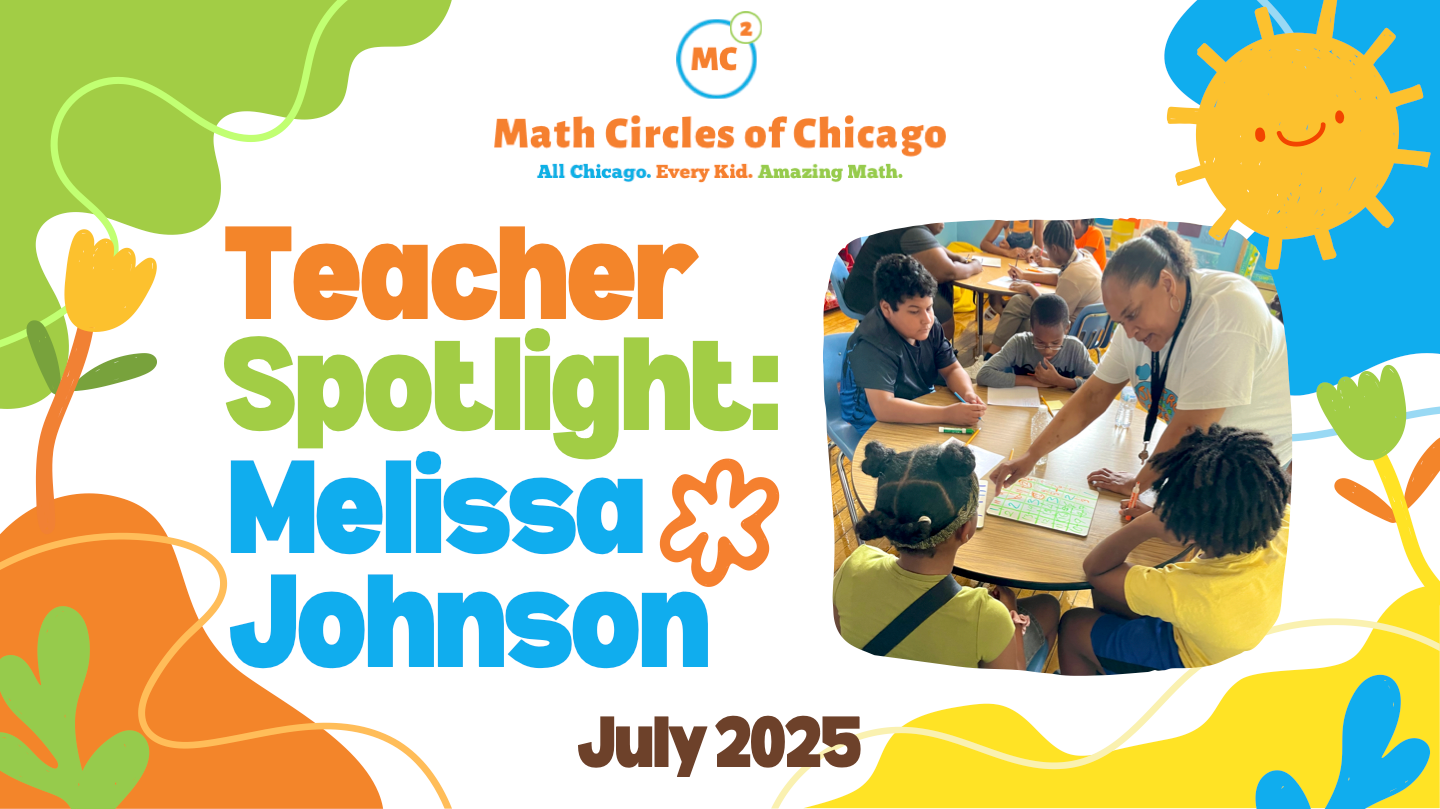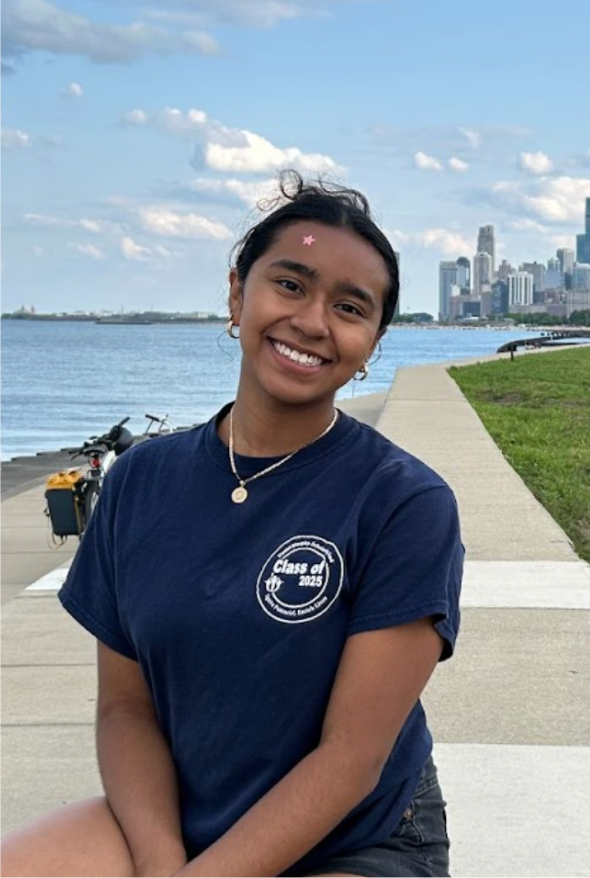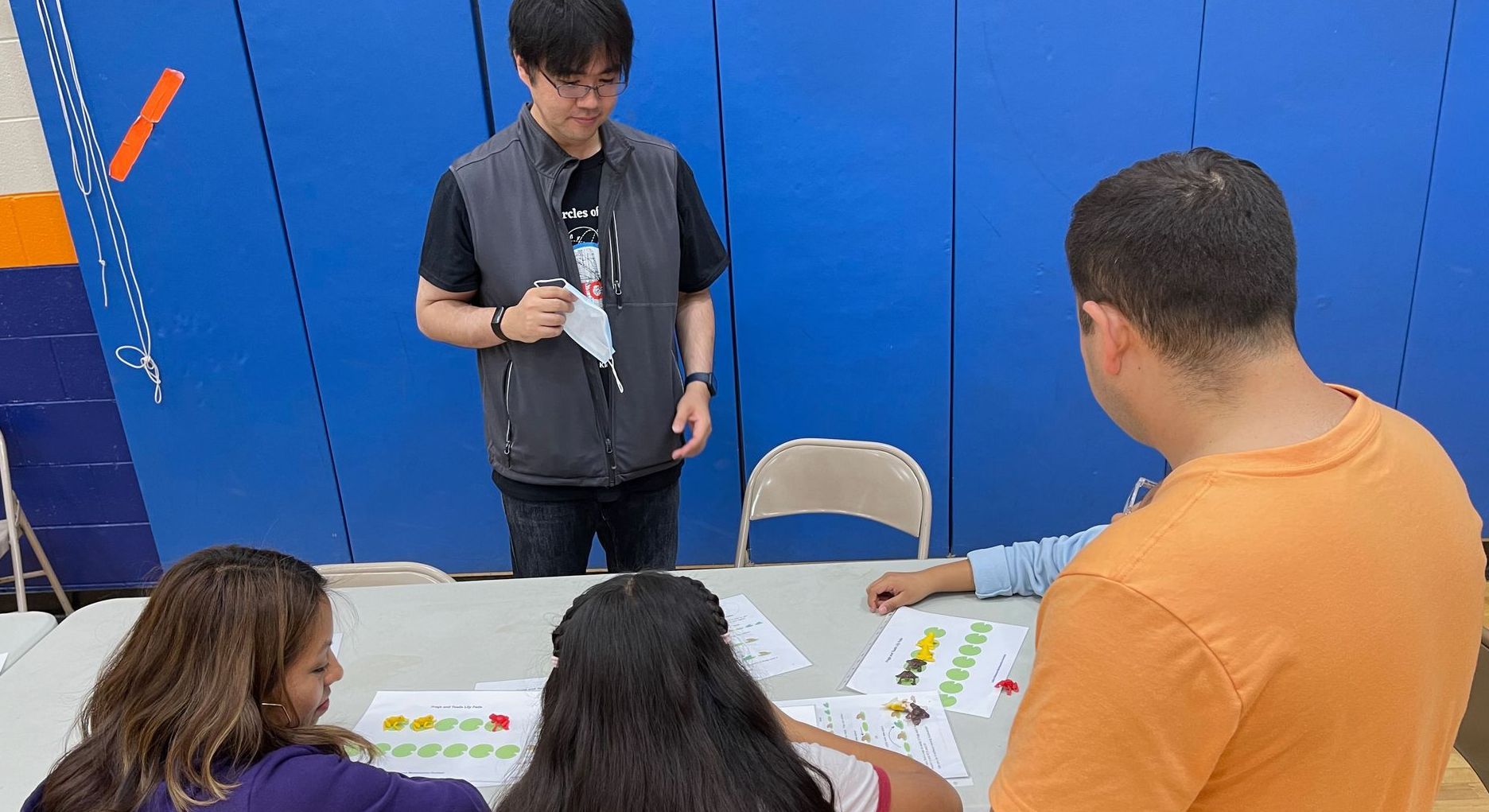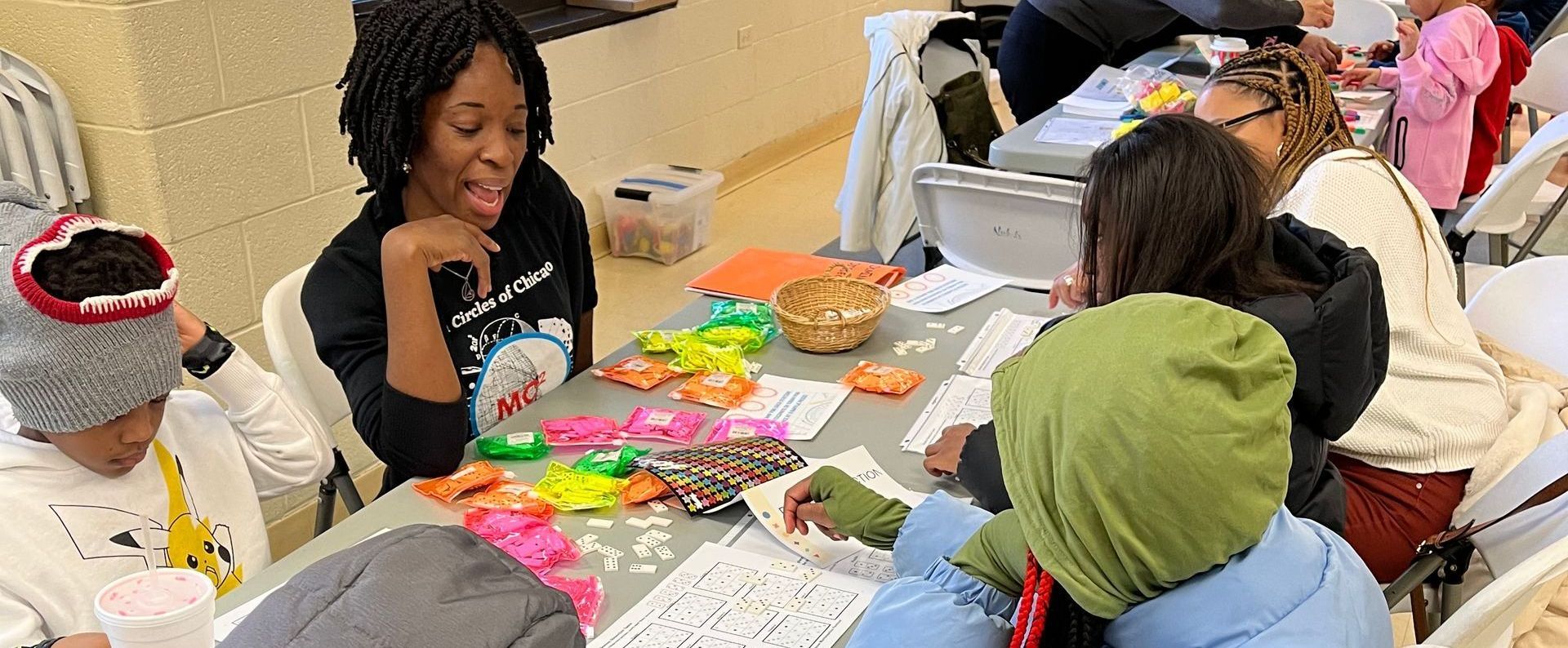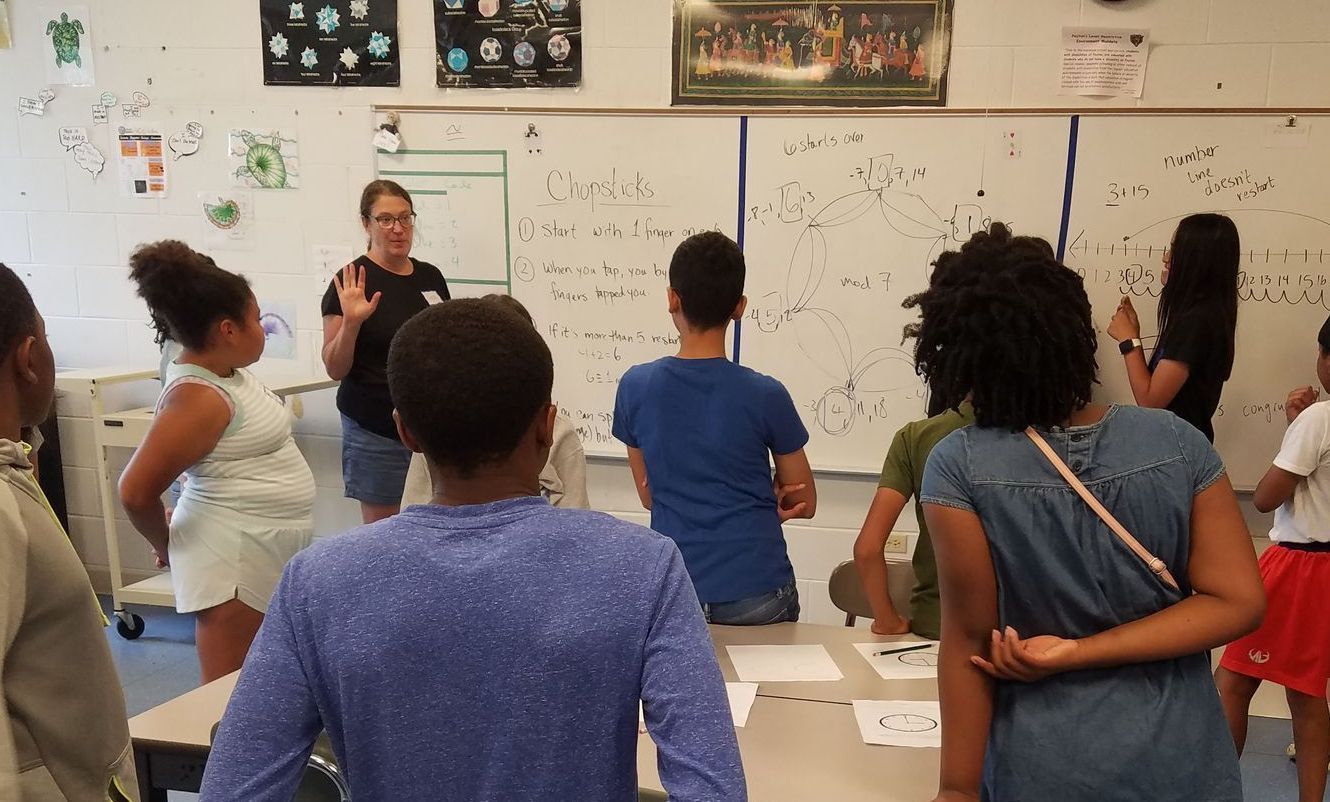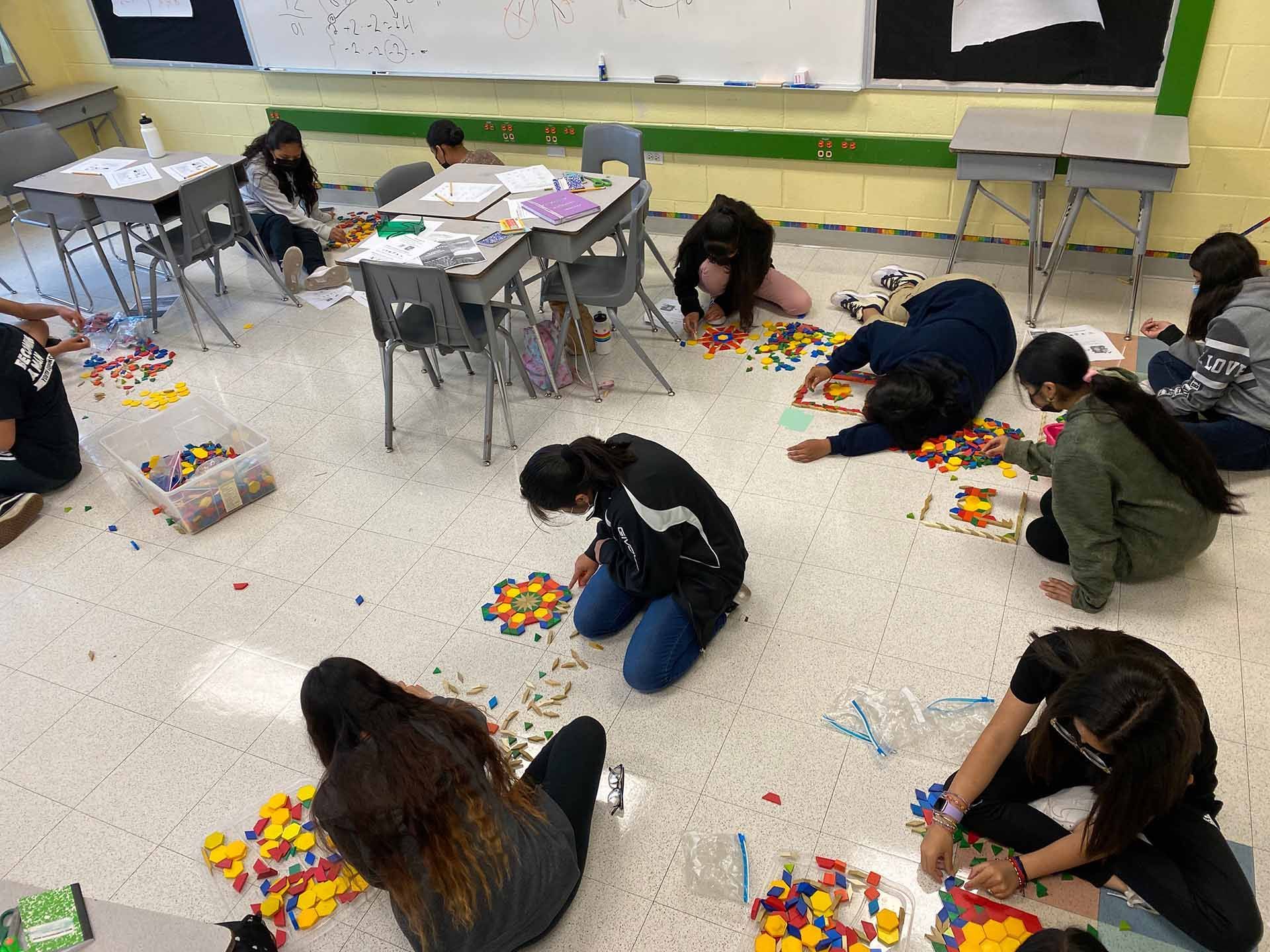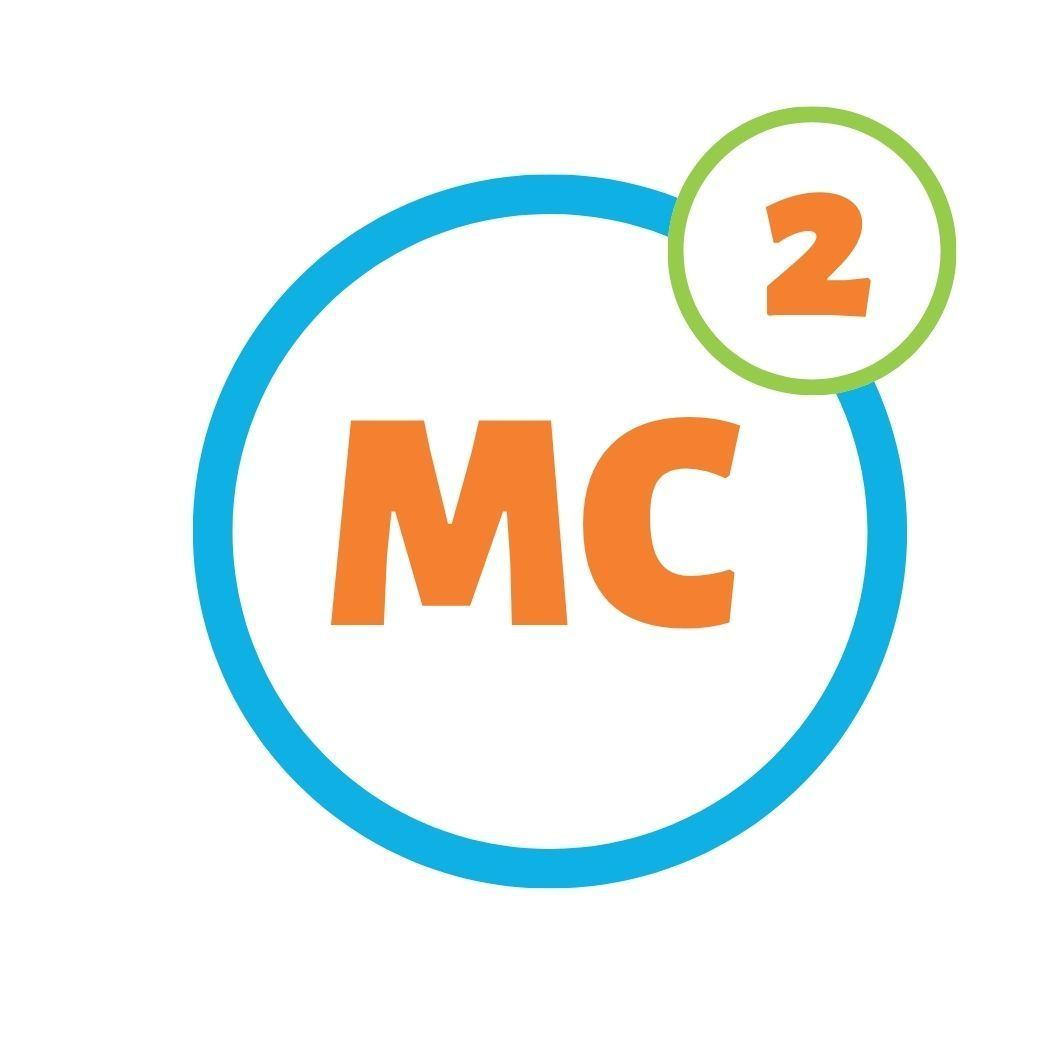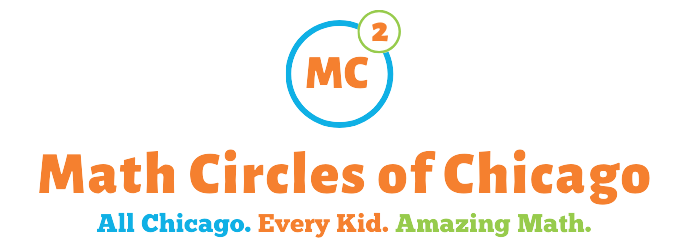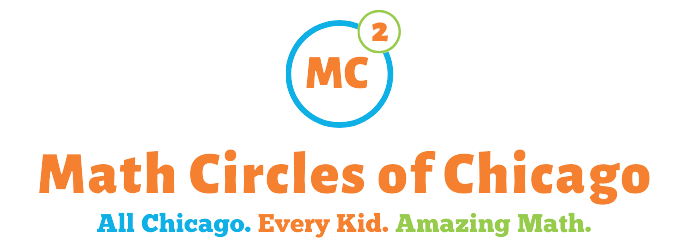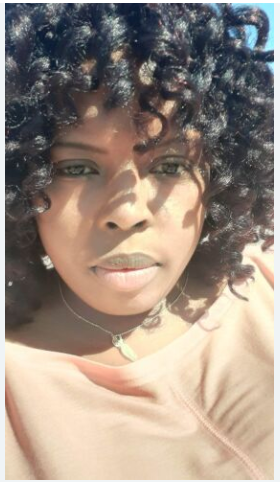By Valeria Leiva
•
July 15, 2025
I had the chance to sit down with Melissa, a veteran teacher at Arthur A. Libby Elementary in Back of the Yards, after watching her lead a fantastic session during day four of our summer camp. Melissa has been teaching for 29 years and has been running the Math Circles after school program for the past two. This summer is her first time teaching our summer program. It wasn’t my first time visiting her classroom, so I already knew it would be great—but once again, she surprised me. The way she cultivates such a joyful and welcoming community with her students is truly something special. The energy in her room is contagious because everyone is having so much fun. Melissa is such a joy to work with. As the MC2 After School Program Manager, I’m so happy she’s one of our teachers, and that I get to see her shine. Valeria Leiva What initially drew you to participate in Math Circles, and how has your experience lived up to, or surprised your expectations? I was really drawn to the fact that Math Circles isn’t directly tied to standards or traditional curriculum we use during the school day. That gives me flexibility and that freedom meant I could try something different, something more engaging for students that differs from the traditional math class. As long as kids are engaged, I’m interested. And honestly, it exceeded my expectations. It’s given me a rejuvenated interest in math. As teachers, we’re often so focused on standards, assessments, and outcomes that math can start to feel like it’s just numbers—and it can get boring to teach. But Math Circles is different. There’s no pressure. We get to explore math in a way that allows students to be real mathematicians. That’s not just great for them—it’s empowering for me, too. Can you share a moment when you saw a student really light up during a session, especially one who might not normally enjoy math? There’s a seventh grader in my summer camp group, one of only four seventh graders in the classroom. For the first two sessions, she seemed withdrawn, like she really didn’t want to be there. She wasn’t engaging with the group, just kind of sitting on the sidelines. I went over and asked her, “Are you a math person?” She just shrugged. So I told her, “This isn’t about getting it right. Just try. Just give it a chance.” And today? She was totally engaged. Not only participating, but leading her group. We were working on a task that was pretty tough, and she cracked it. Her group picked her to explain the solution to the class. I told her, “Whether you believe it or not, you’re the leader in this group.” She really ran with that. She went around to other groups to explain her thinking and help guide them toward the solution. That moment reminded me how much power there is in giving students the space to lead and be seen. If I hadn’t nudged her, highlighted her potential, she might have stayed that same quiet student from day one. Math Circles doesn’t just reinforce that you’re a “math person”, it welcomes your thinking no matter your starting point. Everyone’s knowledge is valid and useful. Her mom even reached out to me afterward and said she came home talking about how much fun she had. FUN. That same student who didn’t want to be there on day one. I want you to know—my kids are really having fun. Whether it’s the after school program or camp, they show up because they’re enjoying it. It’s not about the stipend or the incentives. They genuinely want to be there. There's freedom in this space. No grades. They can sit wherever they want. I show up ready to play with the kids, and that’s exactly what we do. After 29 years of teaching, it’s refreshing. It’s nice to know I’m not expected to be perfect or have all the answers. What have you personally learned or gained from leading Math Circles? Either about math, teaching, or your students? Leading Math Circles has reminded me that there’s so much to learn about math. It’s connected to nearly every part of life. Looking at the lesson plans and the problems we explore, I find myself thinking about math in ways I never had before. It really is all around us, woven into everything we do. I’ve also come to realize that the people who think they’re “not good at math” are often the ones who surprise themselves the most. Math Circles challenges that mindset. No matter how confident you are in math, there’s always more to discover. I’ve had moments where I truly felt like my students knew just as much as I did, if not more. Watching them play, experiment, and problem-solve has been incredibly rewarding. I bring all this teaching experience and background to the table, and then these kids come in and totally surprise me. Sometimes, they come up with ideas or approaches that are better than mine. And honestly, I love that! Have you found that Math Circles has influenced how you teach during the regular school day? If so, how? Definitely. At least twice a week, I bring a Math Circles activity into my regular classroom. My students who are also in the after school program love it so much that during indoor recess, they’ll actually keep playing the games from Math Circles. I have a little spot in my classroom where I keep some of the Math Circles materials, and students know they can grab them anytime. It’s become something they look forward to. Even during the last couple weeks of the school year, when things usually start to wind down, I used Math Circles activities and the whole class really enjoyed them. What keeps your passion for teaching alive, and do programs like Math Circles play a role in that for you? I’ve been teaching for 29 years, and honestly, it’s the kids. As long as I can keep working with kids, I’m happy. I love teaching. There’s nothing else I’d rather do. Math Circles helps keep that love alive. It’s a break from the norm, a chance to just have fun with numbers, to learn alongside students, to work in cooperative groups, and to explore math in a playful way. What I really appreciate is how rich the lessons are. They connect to music, literacy, art, even the environment. You walk away not just feeling like more of a math person, but like a more enriched person overall. If you were encouraging another teacher to give this program a try, what would you tell them? If you’re looking for something that’s meaningful, fun, and actually makes a difference—and yes, lets you make a little extra money while doing it—this is it. You get all the support you need. There are staff you can reach out to for feedback, the materials are provided, and the kids are engaged. There are so many structures in place to help you succeed. More than anything, I feel valued. I feel like I’m part of a bigger purpose when it comes to math. I’m part of a community that’s working to make math fun, accessible, and exciting for our kids. I’ve been part of a lot of programs over the years. Some start strong and then fade away. But Math Circles has been consistently amazing. It’s made an impact. I carry it with me, and I know my students will too, because I tell them about it, I model that excitement. The enthusiasm and commitment of the Math Circles leadership team is contagious. The way the team shows up, the passion, the attention to detail in the workshops, emails, communication, even the events like the picnics. It all matters. And it shows. I want to carry out their vision because I see all the care and effort behind the work. And I want to reflect that in my own classroom.
